It is estimated that this year in 2018 there will be 266,110 new cases of invasive breast cancer in women and 2,550 new cases of invasive breast cancer in men. With the increase in research in regards to medical cannabis, exciting things are being discovered and proved in the cannabis community. We are learning that cannabinoids like CBD may be able to help with the progression and existence of breast cancer.
Medical cannabis has been studied for decades, and we have had an idea of what it can do. But now that we are going further into the plant and discovering cannabinoids and what they do, we are starting to have a better idea of how medical cannabis can help. What we are learning is that the cannabinoid CBD may be able to help with breast cancer by slowing down the cell splitting process, inhibiting genes, and killing off cancer cells.

What Is Breast Cancer?
We are made up of a bunch of tiny cells that replicate and die off. Cancer cells are damaged cells that don’t know when to die, so they just keep multiplying. Damaged cells are multiplying all of the time, but our immune system can usually keep it under control. However, when the immune system is lacking, or the cells are dividing too quickly, it can turn into a group of damaged cells called tumors.
Not all tumors are cancerous. There are benign tumors, which aren’t cancerous, and then malignant tumors, which are cancerous. Benign tumors can be harmless if taken care of but can turn malignant if gone untreated. The most significant differences between these types of growths are that malignant tumors spread into the surrounding tissue, destroy the surrounding tissue, and can cause other tumors to form.
Breast cancer is when these tumors form in the breast. When someone has cancer, where the tumor is located dictates the name that it carries. Most breast cancers start in the gland that produces milk, called lobules, or in the duct that connects the lobules to the nipple.
Signs And Symptoms Of Breast Cancer
In the beginning stages of breast cancer when it is most easily treatable, there are usually no signs or symptoms that this disease is beginning to develop. This is why it is so important to do screenings so you can detect the cancer before it becomes difficult to manage.
The most common symptoms of breast cancer is a painless lump in your breast. Sometimes the cancer can spread to the lymph nodes in your underarm creating swelling before you can even feel the original tumor in your breast.
Other Symptoms Of Breast Cancer
- Pain and swelling in your breast
- Thickness or redness of the skin
- Heaviness in your breast
- Spontaneous discharge out of the nipple
- Erosion or retraction of the nipple
Treatment Options For Breast Cancer
There are several options you have when it comes to treating your breast cancer. Your doctor should go through with you what all options you have and what the side-effects or downfalls of each treatment option are. If you have a young benign tumor, you will most likely undergo a procedure that is different from someone who has an invasive malignant tumor that has had time to spread.
Surgery
Some tumors can be surgically removed. The surgeon will remove the diseased tissue as well as the healthy tissue surrounding the tumor. A lumpectomy is used for the smaller tumors, and radiation therapy is advised for treatment afterward if the cancer is invasive. And then there is the mastectomy, where the entire breast must be removed.
Radiation Therapy
Radiation therapy is used to kill off the cancer cells. This is different from chemotherapy, by only affecting the area where the tumor is present. This has been one of the most popular forms of cancer treatment because it has such a high success rate. Reoccurrence has shown to be less than 5% in the next ten years when choosing this method.
The only issue with radiation therapy is the side effects. It can cause damage to the lung, nausea, fatigue, and swelling in the breast. In some cases, it can even cause blistering and peeling of the skin, which is when doctors will suggest using a topical treatment to help with the pain and blistering.
We are now coming to a time where the research on cannabis is becoming plentiful and may be pushing medical marijuana up to the top of the list of ways to help treat cancer. Some studies have suggested that the cannabinoid CBD may be very beneficial with treatment, and if taken with radiation may be able to relieve some of the side effects.

What Is CBD?
Cannabidiol (CBD) is a cannabinoid that comes from the cannabis plant. Unlike the cannabinoid THC that is ever so popular, CBD doesn’t get the user high. While it can alter the user in a way that is considered psychoactive, it is still a non-intoxicating chemical.
There is marijuana-derived CBD oil and hemp-derived CBD oil, here at CBD Instead we carry hemp-derived products. This is because it is still not legal in all 50 states to use CBD oil that is derived from the marijuana plant. Hemp products are legal because they contain less than .03% of THC, which is the legal limit. Both types of the cannabis plant are full of other cannabinoids as well, making both types of oil a valid option.
How Does CBD Work?
Cannabidiol does bind to the cannabinoid receptors in your body, but the bond is very weak. The main purpose of CBD is to help regulate your endocannabinoid system. It does this by elevating chemicals in our bodies called endocannabinoids, stimulating specific receptors, and opening up pathways for better travel throughout the brain.
What Is The Endocannabinoid System?
Your endocannabinoid system is your body’s regulator. It helps to make sure that your body maintains homeostasis. When you get a cold, your endocannabinoid system is what helps your immune system know when to go and attack foreign organisms in your body that are making you sick. It also makes sure you don’t stay angry forever or bleed out from a small cut.
Parts Of The Endocannabinoid System
Cannabinoid Receptors
Your entire body is covered in cannabinoid receptors. There are two that are the most thoroughly studied called the CB1 and CB2 receptors. Both bind with endocannabinoids and help mediate functions in the body.
Endocannabinoids
Cannabidiol has shown to be so effective because of its ability to elevate the levels of endocannabinoids in your system. The endocannabinoid anandamide mainly binds with the CB1 receptor which helps to regulate the functions of your neurological system. The endocannabinoid 2-AG binds primarily with the CB2 receptor, which helps with the immune functions.
How Can CBD Help With Breast Cancer?
While the studies are still in their early stages, cannabidiol has been showing promise as an aid in the treatment of breast cancer. Because cannabidiol has fewer side-effects, it is becoming an attractive treatment option for long-term and severe diseases. But remember to always talk to your doctor about any medical changes you are making when choosing what treatment option is best for you.
Cannabidiol May Cause Cell Death
In a study where scientists had cancer cells in vitro (in a test tube or petri dish) and in vivo (using a live organism) they found that the cannabidiol killed breast cancer cells. Scientists believe this study is a good indication that CBD could be used in future treatments for preventing tumors as well as killing them.
CBD In Aggressive Breast Cancer Study
Breast cancer is considered aggressive when the cells divide quickly, and the cancer begins to spread crating more tumors, also known as metastasis. The gene Id-1 has shown to play a crucial role in the mediation of metastasis. In a rodent model, scientists found that by downregulating this gene, the cancer cells became less aggressive. Cannabidiol has shown in studies to downregulate the gene Id-1, leaving scientists to believe it may be able to help with aggressive breast cancer.
Anandamide Slowing Cancer
One thing about aggressive breast cancer is that the cells divide quickly making it more difficult to treat. But studies have suggested that the endocannabinoid that your body produces called anandamide blocks the proliferation of the breast cancer cells. This means that by elevating anandamide, CBD oil may be able to slow down the rate at which the cancer cells divide.

CBD For Radiation Side Effects
Cannabidiol can also be used alongside other cancer treatments like radiation to help with the progress as well as the side-effects. CBD hemp oil may be able to help with the following side-effects that make certain treatments so undesirable:
- Blisters and skin peeling
- Nausea
- Fatigue
- Inflammation
Talk to Your Doctor
If you want to use CBD hemp oil alongside your cancer treatments, talk to your doctor. If you are on any other medications like anti-depressants or painkillers they can help determine whether or not they are processed by the same enzyme that CBD affects causing adverse reactions. They can also closely monitor your progress through treatment, helping you discover what path is the best one for you.












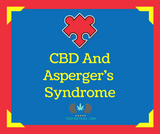
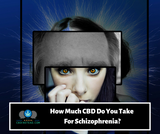
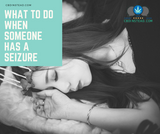
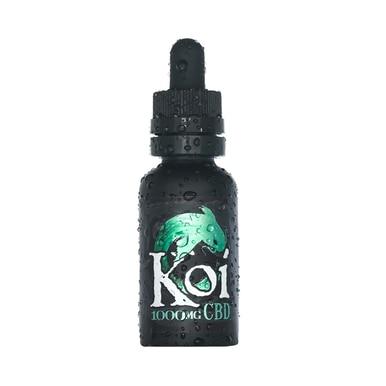
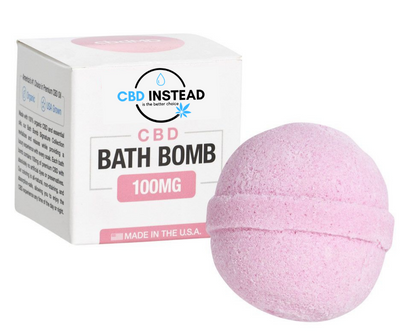
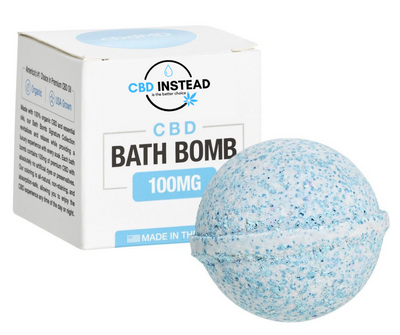
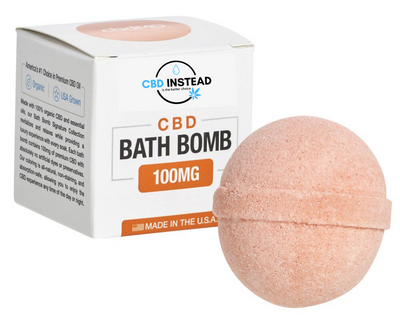
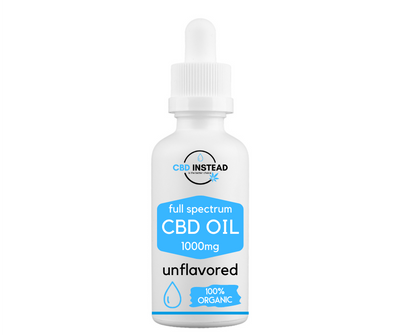
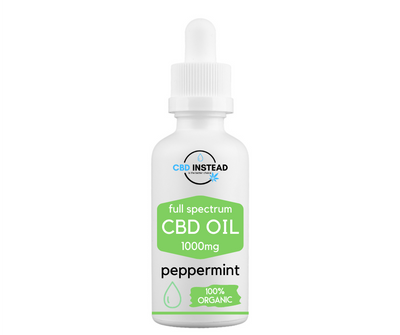
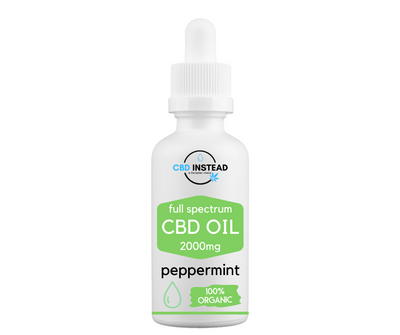
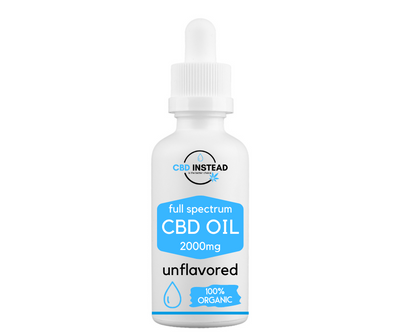
Im new at this. I was diagnosed with lubula breast cancer in early may; I have had a lumpectomy and they have to go back in and remove some more tissue (not much). I haven’t started radiation and I won’t do chemo.. My radiation oncologist support the holistic approach of CBD and I’m just learning about it. I smoked marijuana for many years prior, not anymore, so the more I can learn about this the better. I’m 71 yr old and I refuse to go through what people go through to live; this is why I’m very interested in CBD.